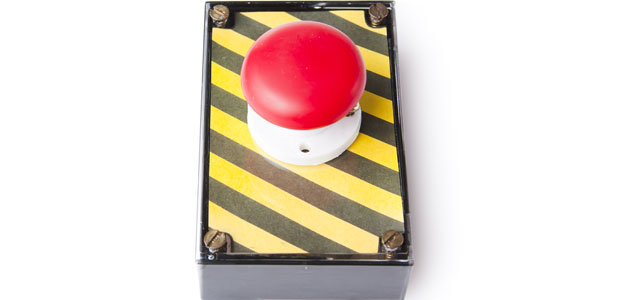Advertisement
Panic Attacks
According to the Canadian Mental Health Association (CMHA), “Panic attacks are terrifying episodes during which the person is convinced they are about to die or collapse. Without warning, an individual is suddenly overwhelmed by emotional and physical sensations that signal imminent death.” According to Statistics Canada, 1 million Canadians have experienced panic attacks at some … Continued

According to the Canadian Mental Health Association (CMHA), “Panic attacks are terrifying episodes during which the person is convinced they are about to die or collapse. Without warning, an individual is suddenly overwhelmed by emotional and physical sensations that signal imminent death.” According to Statistics Canada, 1 million Canadians have experienced panic attacks at some point in their lives.
Fear is at the root of this anxiety-based disorder, according to the CMHA. People become struck by fears they know are irrational and illogical, yet which are so powerful and unpredictable that they drastically change their lives to avoid feared situations. Anxiety can turn into a vicious cycle. Stress increases your anxiety, thus increasing demands on your body’s ability to cope with it.
Get help
CMHA encourages people to understand their panic episodes, explore exactly what triggers panic, and develop styles of coping with the sensations. Once you understand what’s at the root of your panic attacks, you can learn ways to cope with them. Fortunately, panic is one of the most treatable of many anxiety problems.
Cognitive behavioural therapy (CBT)
This is a systematic type of therapy that can help change thinking patterns that provoke anxiety. Cyopick’s therapist recommended journalling and reading books to inspire a more positive outlook—information about dealing with life challenges, setting boundaries, and restoring faith. She said these books helped her mindset and inspired her to read more of them.
Anxiety management training is a type of CBT that teaches techniques such as relaxation, deep breathing and breathing exercises, yoga, tai chi, massage therapy, and meditation in order to control anxiety. Aerobic exercise has also been shown to have a calming effect.
Dietary recommendations
There is evidence that diet choices can help control panic attacks:
- avoid caffeine and sugar
- reduce salt intake
- maintain stable blood sugar
- increase dark green leafy vegetables, legumes, eggs, nuts and seeds, chicken, and fish
Supplements and herbs
Other remedies for controlling anxiety include nourishing the brain with B vitamins, magnesium, essential fatty acids, zinc, and amino acids, such as l-tyrosine..
Based on a long tradition of use, there are some herbal remedies Frank suggests that may also offer relief:
- Anxiolytic (anti-panic or anti-anxiety) herbs include St. John’s wort, oatstraw, lemon balm, camomile, skullcap, and brahmi.
- Adaptogenic (rejuvenating) herbs include ginseng, licorice root, schisandra, rhodiola, and Centella asiatica.
As with all medicines, it is important to consult a qualified health care practitioner to determine dosages and to ensure you get remedies that suit your individual needs.
Related Articles





